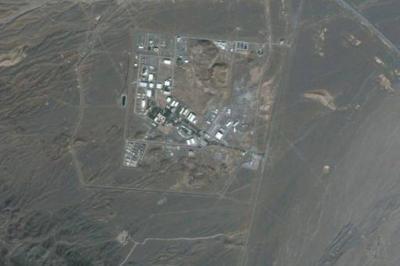Iran announced on Tuesday through the government spokesman that it is "considering" the possibility of extending the technical agreement with the International Atomic Energy Agency (IAEA), which expired days ago. Spokesman Ali Rabiei stated at a press conference, "We are in the process of studying the need (to extend the agreement) and all other options."
In February, based on a law passed by the conservative-dominated parliament, Iran began restricting the activities of IAEA inspectors, a move the government of moderate President Hassan Rouhani expressed reservations about, but confirmed that it would abide by its provisions. The law linked this procedure to the continuation of the sanctions that Washington reimposed on the Islamic Republic starting from 2018, following the U.S. administration's unilateral withdrawal from the nuclear agreement reached between Tehran and major international powers in 2015.
However, the IAEA made a temporary "technical" agreement with Iran, allowing for a limited continuation of steps that would have completely ceased under the parliament's law. Accordingly, Tehran maintained the operation of surveillance cameras belonging to the IAEA at some facilities, while retaining their recordings. It stated that it would hand over the recordings to the IAEA if Washington lifted sanctions by the end of the agreement's deadline, or would completely erase them if the sanctions were not lifted.
The agreement lasted three months and was extended for an additional month, ending on June 24. IAEA Director General Rafael Grossi confirmed on the 25th that "Iran did not respond" to his message regarding whether it intended to continue adhering to the technical agreement. Iranian Foreign Ministry spokesman Saeed Khatibzadeh confirmed on Monday that his country has not yet made a decision regarding the recordings.
Typically, the authority to make decisions concerning the nuclear file in Iran lies with the Supreme National Security Council. The discussions about the fate of the technical agreement come at a time when Tehran and the countries still part of the nuclear agreement, with indirect U.S. participation, are engaged in talks in Vienna aimed at reviving the 2015 agreement.
This agreement allowed for the lifting of sanctions imposed on Tehran in exchange for limiting its nuclear activities and ensuring the peaceful nature of its program. However, its effects have been considered null following former U.S. President Donald Trump's decision to unilaterally withdraw from it in 2018 and to reimpose severe sanctions on Iran. New U.S. President Joe Biden has expressed his intention to bring the country back into the agreement, provided that Tehran returns to full compliance with it, which it began gradually rolling back about a year after the U.S. withdrawal.




